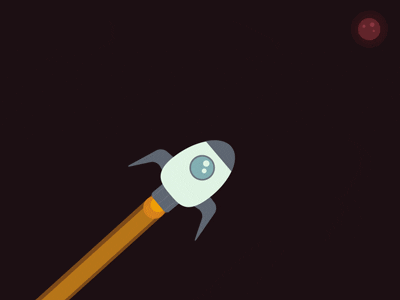Think again
Plus, a quick fix for email etiquette
"I’ve turned my back on the world. I can’t afford to doubt. I have to believe."
—Charles Laughead
Cognitive dissonance is the tension we feel when we’re presented with information contrary to our beliefs. And it often leads to self-delusion. In this week’s episode, a woman shares her story of love, longing, and self-deception.
BRAIN WAVES
Think again. It’s hard to be alone with our thoughts. Even when those thoughts are enjoyable, we seem to prefer external stimuli, like scrolling through our phones or watching a video. One study even found that people would rather shock themselves than be left alone with their thoughts. But Rémy Furrer, a psychologist and researcher at the University of Virginia, argues that being alone with your thoughts is a skill you can practice. He and other researchers found that people most enjoy the experience of thinking when it feels meaningful, but “people do not spontaneously choose meaningful topics that are also enjoyable.” In other words, it’s hard to come up with meaningful things to think about on the spot. The key to a more engaged mind, Furrer says, is to make a list of topics to think about, then schedule a “thinking break” to mull over those topics. “When conjuring topics, choose ones that are both meaningful and pleasurable,” he writes. “Prior to the thinking period, write down these topics, so that you can glance at them if you feel like you’re having a hard time staying focused.” Interesting — ahem — food for thought.
This is not an urgent matter. We all have trouble disconnecting from work sometimes, and email can make that problem worse. When we receive an after-hours work email, research shows that we feel pressured to respond right away — even when the sender doesn’t expect a response. The researchers called this ‘the email urgency bias” and reported that it was harmful to well-being. The good news? There’s a simple fix. If you’re going to send an off-hours email to your colleague, add a quick note at the end of it: This is not an urgent matter so you can get to it whenever you can. The researchers reported, “We found that senders can help receivers feel less pressure to respond right away... simply by making their expectations of response speed explicit.” With a little email etiquette, we can make our co-workers' lives a little easier. And in the meantime, be glad your email doesn’t look like this.
Intrigued by the Panama Papers? There’s more — in this episode, sociologist Brooke Harrington explores the secret lives of billionaires. What she found shocked her. Listen to learn more.
BIG NEWS
Our new podcast comes out this week! Subscribe to My Unsung Hero on Apple, Spotify, Stitcher, etc., where you can hear the first three episodes of the new show. Our first story features listener Jackie Briggs from Portland, Oregon. She tells us about the day in 2006 when she was at a conference, and a stranger noticed an unusual mark on Jackie's arm. "So this woman urged me to call my doctor Monday morning, first thing," Jackie tells us. "She saved my life." Huge shout-out to Laura Kwerel, our lead producer on My Unsung Hero. Laura’s creativity and attention to detail have been essential to the success of this project, and we can’t wait for you to hear what she has created.
If you have your own story of an unsung hero, we want to hear about it! Go here to find out how to record and share it with us.
ON THE PODCAST
Oct 4: When we want something very badly, it can be hard to see warning signs that might be obvious to other people. This week, we bring you two stories about how easy it can be to believe in a false reality — even when the facts don’t back us up.
Oct 11: We're often harder on ourselves than we are on anyone else. We criticize ourselves for shortcomings and beat up on ourselves for trivial mistakes. In this week’s episode, how we can turn down the volume on our inner critic and embrace a bit more self-compassion instead.
MIND GAMES
You are filling an empty barrel. Which will happen first?
A) 2/3 full
B) 3/4 empty
C) 1/2 full
D) 2/3 empty
LAST WEEK’S PUZZLE
A man got into a ship and could see more than four continents at the same time. How is this possible?
The Answer: It was a spaceship.
FROM THE TWITTERATI…
A MOMENT OF JOY
The kind strangers who stopped to help this guy with his tie:
Have an idea for Hidden Brain? A story you want to share with us? Send an email to ideas@hiddenbrain.org. And if you’d like to support our work, you can do so here. Listen to us on Spotify, Apple or your favorite podcast platform.





